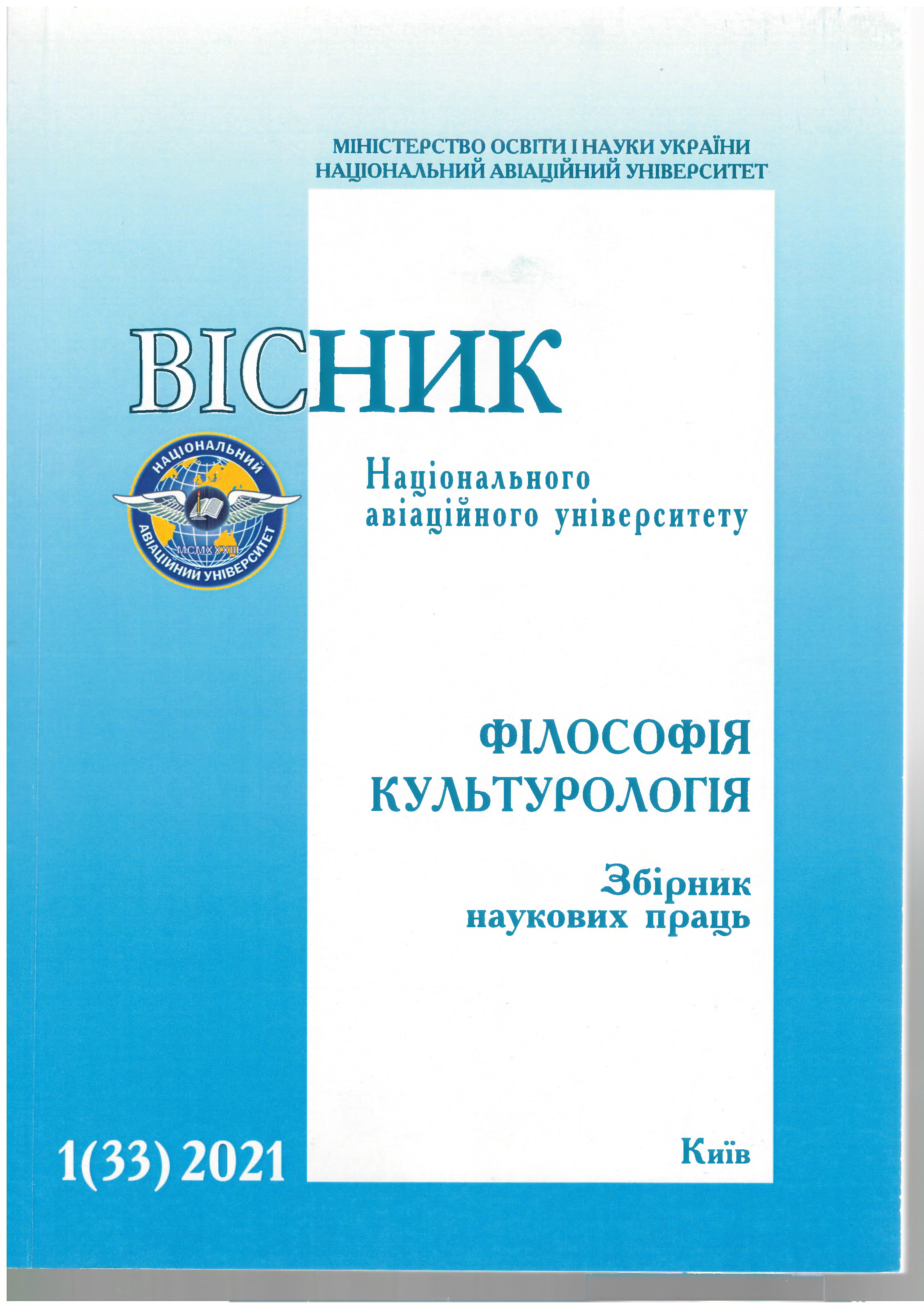DIGITAL DIMENSION OF CURRENT STAGE OF SOCIETY'S CIVILIZATION DEVELOPMENT
DOI:
https://doi.org/10.18372/2412-2157.33.15635Keywords:
society, civilization development, digital reality, digital culture, digital education, digital divide, digital povertyAbstract
Introduction. Modern information technologies are often a convenient tool in the hands of the real masters of the world, who own the latest digital technologies and skillfully use them in their narrow-mercenary interests. The issues of negative consequences of the digital technologies use both in a global and local scale are arising: What transformations everyone, without exception, undergo a sphere of public life under the influence of "digitalization"? Which ones are positive for most people and which ones pose a threat? The aim and tasks of the study is dictated by the issues mentioned above: to identify the content of transformations in various social practices caused by the widespread use of digital technologies. Research methods. An interdisciplinary approach, which helps to study the impact of digitalization on significant changes in social practices, to identify the transformations of the world society due to the use of digital technologies. A comparative method, as well as a comparative one, is used to contrast scientific positions of researchers. Research results. The future society, expected to have come at the age of widespread use of information and communication technologies turns to be the reality at the beginning of the XXI century exclusively. However, it is not cloudless as it has been basically described by Western researchers. The study analyzes the challenges, negative trends in the use of information and communication technologies in the spheres of interstate relations on the world stage; the phenomenon of digital poverty in the field of education is examined; shows the negative impact of modern media on the psyche of people, especially adolescents and young people, and so on. Discussion. The theoretical approaches of some researchers to the analysis of results of digital technologies application in various social spheres are analyzed. In particular, the views of V. Onoprienko, O. Ivanenko, M. Koretskaya, O. Savenkova, N. Chenbay are presented, which consider socio-cultural problems arising from the use of these technologies. Conclusions. Based on the study, it is concluded that scientific and technological progress, new technologies have the flip side, because their use provokes risks, challenges, negative consequences alongside positive changes in people's lives. Some of them are objective in nature, as not all its effects can be foreseen by their developers. But there are also negative trends associated with the introduction of new technologies that are caused by the human factor. Moreover, as shown in this article, digital technologies are used by unscrupulous users to obtain personal gain at the expense of other people. In general, this leads to a decrease of society’s cultural level.
References
Bowles, N. 2019. Human Contact Is Now a Luxury Good. New
York Times. Режим доступу: https://www.nytimes.com/2019 /03/23/
sunday-review/human-contact-luxury-screens.html? fbclid=IwAR1nZWjP
Kn8GgEfAQaVP z1gU7X9w9jOiPD7I-KmBt-M_oFIfrlGzemCabXs.
Антіпова О. П. Феномен мови ворожнечі в умовах сучасного
інформаційного простору / О. П. Антіпова // Вісник Національного
авіаційного університету. Серія: Філософія. Культурологія: Збірник
наукових праць. – Вип. 1 (31). – 2020. – С. 148-152.
Дротянко Л. Г. Інтенсифікація глобалізаційних процесів
в інформаційну еру / Л. Г. Дротянко. // Вісник Національного
авіаційного університету. Серія: Філософія. Культурологія:
Збірник наукових праць. – Вип. 1 (27). – 2018. – С. 9-13.
Дротянко Л. Г. Специфіка методологічних засобів науки в
процесі її інформатизації / Л. Г. Дротянко // Вісник Національного
авіаційного університету. Серія: Філософія. Культурологія: Збір-
ник наукових праць. – Вип. 1 (23). – 2016. – С. 11-15.
Дротянко Л. Г. Трансформація комунікативної функції мови
в добу інформатизації / Л. Г. Дротянко // Вісник Національного
авіаційного університету. Серія: Філософія. Культурологія: Збір-
ник наукових праць. – Вип. 2 (16). – 2012. – С. 5-9.
Иваненко Е. А. Созвездие Горгоны (эссе об эффектах
медиа) / Е. А. Иваненко, М. А. Корецкая, Е. В. Савенкова. –
СПб.: Алетейя, 2012. – 328 с
Кастельс Мануель. Інтернет-галактика. Міркування щодо
Інтернету, бізнесу і суспільства / Мануель Кастельс; пер. з англ.
– К.: Видавництво «Ваклер» у формі ТОВ, 2007. – 304 с.
Кримський С. Б. Цивілізаційний розвиток людства /
С. Б. Кримський, Ю. В. Павленко.- К.: Вид-во «Фенікс», 2007.– 316с.
Морен Э. К пропасти? / Э. Морен; пер. с франц. – СПб,
Алетейя, 2011. – 136 с.
Оноприенко В. И. NBICS-технологии и риски общест-
ва знаний / В. И. Оноприенко // Вісник Національного авіацій-
ного університету. Серія: Філософія. Культурологія: Збірник
наукових праць. – Вип. 2 (26). – 2017. – С. 12-15.
Оноприенко В. И. Риски общества знаний и мегатех-
нологий / В. И. Оноприенко // Вісник Національного авіаційно-
го університету. Серія: Філософія. Культурологія: Збірник
наукових праць. – Вип. 1 (21). – 2015. – С. 27-30.
Уэбстер Ф. Теории информационного общества /
Ф.Уэбстер; пер. с англ. – М.: Аспект Пресс, 2004. – 400 с.
Ченбай Н. А. Інформаційно-комунікаційні технології
глобального суспільства / Н. А. Ченбай // Вісник Національного
авіаційного університету. Серія: Філософія. Культурологія:
Збірник наукових праць. – Вип. 1 (31). – 2020. – С.109-113.
Шапинская Е. Н. Массовая культура: теории и практики / Е.
Н. Шапинская. – М.: ООО Издательство «Согласие», 2017. – 386 с.

